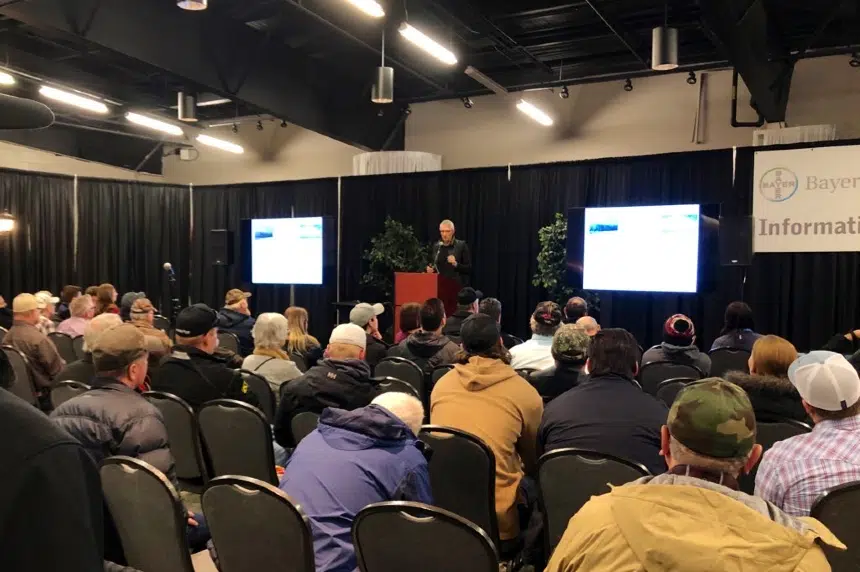A professor giving a presentation on climate change and agriculture was met with acceptance and some criticism Wednesday at the Western Canadian Crop Production show.
University of Regina’s David Sauchyn presented his take on how climate change is affecting Saskatchewan agriculture. He explained how producers can capitalize on opportunities with the changing climates and what challenges comes with it.
Opportunities he spoke about included a longer growing season, along with wetter, milder, more favourable conditions in Saskatchewan’s winter months.
“You get short seasons and long (winter) seasons, but on average, it’s getting longer. There’s a potential for more types of crops, and higher yields if you can manage years in which it’s excessively wet, and years that it’s excessively dry.”
Sauchyn said the challenges that the changing climate poses includes increased variability, more favourable climate for pests and invasive species, less water stored as snow, and re-occurrence of sustained drought in a warmer climate.
Sauchyn’s work includes testing moisture along with historical climate through pieces of wood cut from trees across North America.
He said the prairies aren’t getting warmer, with peak temperatures staying stagnant over the growing season in recent memory. In turn though, peak lows during the winter months are increasingly getting warmer.
Sauchyn said his work proves the prairies “aren’t getting any warmer, but less cold.”
“If you’re trying to warm up, you get heat from two sources, (the sun and the air). As a result of burning fossil fuels, we’re trapping more heat next to the ground, we’re trapping more heat in the air, and the water,” he said.
However, not everyone was in favour of Sauchyn’s work.
Following his presentation, a member of the audience at the Bayer Crop Sciences Information Theatre used the question segment of the presentation to say Sauchyn’s work was “fake news.”
“Stop using the fake statistics that you are giving,” he said. “You’re a good person, I understand that, but what you’re saying is, is all wrong to this next generation of young farmers that are coming into the future.”
Sauchyn remained calm, regardless of the man’s opinion.
“I actually didn’t provide any news. I only presented data that I didn’t get from the UN. I’ve been collecting that data for 37 years.”
Following the presentation, Sauchyn said he gets people questioning his work “quite often.”
“I get people (yelling) at me and say, ‘you need to read the internet,’ I say, well, I actually don’t, because I create the science. I produce the science.”
Sauchyn did add that the younger people in the crowd seemed embarrassed by the mans thoughts on his presentation.
“When someone like that challenged me, they kinda dipped their heads, and shook their heads, as if they were frustrated.”
Sauchyn said everyone is entitled to their opinion, and said there’s at least one person who makes comments like the “fake news” narrative every time he presents.







